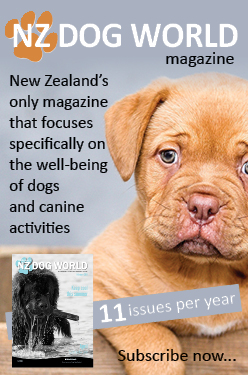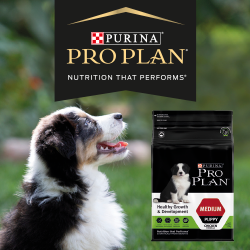Caring For Your Dog - House Training
 Housetraining 101
Housetraining 101
Housetraining a new puppy can be easy and effective if the necessary time and patience is dedicated. Just like an architect building a house, a plan is needed.
First step
Teach the puppy where it is to eliminate, by accompanying it every time it goes outdoors. Choose a specific location with easy access. The area will soon become a familiar spot as the pup recognises odour from previous excursions. Mildly praise any sniffing or other pre-elimination behaviours. When the puppy eliminates, praise it heartily. Using the same word when the pup eliminates, “go toilet" for example will teach it to go on command later when it is needed.
Scheduling meal times
Controlling the puppy's feeding schedule provides some control over its elimination schedule. Most will eliminate within the first hour after eating. Because of this, it is best to avoid feeding a large meal just before confinement. Offer food two or three times each day at the same times, and make it available for no longer than 30 minutes. The last meal should be finished three to five hours before bedtime.
It is also important to take it outdoors after playing, drinking, or sleeping. By scheduling feeding times, play sessions, confinement periods, and trips outside to the "toilet" area, you will accustom your puppy to a relatively predictable elimination schedule.
Preventing mistakes
The most challenging part of the housetraining process is preventing the pup from eliminating indoors. Until the puppy is housetrained, constant supervision is needed. When unable to supervise, confine the pup to a relatively small, safe area. Always take the puppy out to eliminate just before confinement. A wire or plastic crate provides an excellent area in which to keep the puppy when you cannot observe it. The crate becomes it safety nest and it will not eliminate there.
If the puppy is home alone each day for long periods, restrict it to a larger area such as a small room or exercise pen. The area should provide enough space for the puppy to eliminate if necessary and rest several feet away from a mess. Place paper at the sites where the puppy is likely to eliminate. To associate good things with the confinement area, spend time in the area playing with the puppy or simply reading nearby as it rests there.
Returning to the scene of the crime
To discourage the puppy from returning to previously soiled areas, remove urine and fecal odour with an effective commercial product. These can be purchased from a local pet supply store or veterinarian. If your puppy begins eliminating in certain areas of the home, deny access by closing doors to the rooms, utilising baby gates, or moving furniture over the soiled areas. Most pets prefer to avoid eliminating in areas where they eat or play. Feeding or placing water bowls, bedding, and toys in previously soiled areas can discourage elimination.
Keeping your cool
No puppy has ever been housetrained without making a mistake or two. Be prepared for the inevitable. Punishment is the least effective and most overused approach to housetraining. A correction should involve nothing more than a mild, startling distraction and should be used only if the puppy is caught in the act of eliminating indoors. Immediately take the pup to its elimination area outdoors to finish. Once it is done, praise it for eliminating outside.
A correction that occurs more than a few seconds after the puppy eliminates is useless because it will not understand why it is being corrected. If the punishment is too harsh, the puppy may learn not to eliminate in front of the owner, even outdoors, and the owner runs the risk of ruining their bond with the puppy. Don't even think about rubbing the pup's nose in a mess. There is absolutely nothing it will learn from this, except to be afraid. Some pets will squat and urinate as they greet family members. Never scold them. This problem is due typically to nervousness or excitement, and scolding will always make the problem worse. Puppies tend to outgrow this from seven to ten months of age.
Summing it up
If patience and consistency is used, a puppys housebreaking need not be a stressful procedure. With a little time and patience it will all work out. Keeping to a schedule will help speed up the process and make it easier for both owner and pup to know what is expected.







